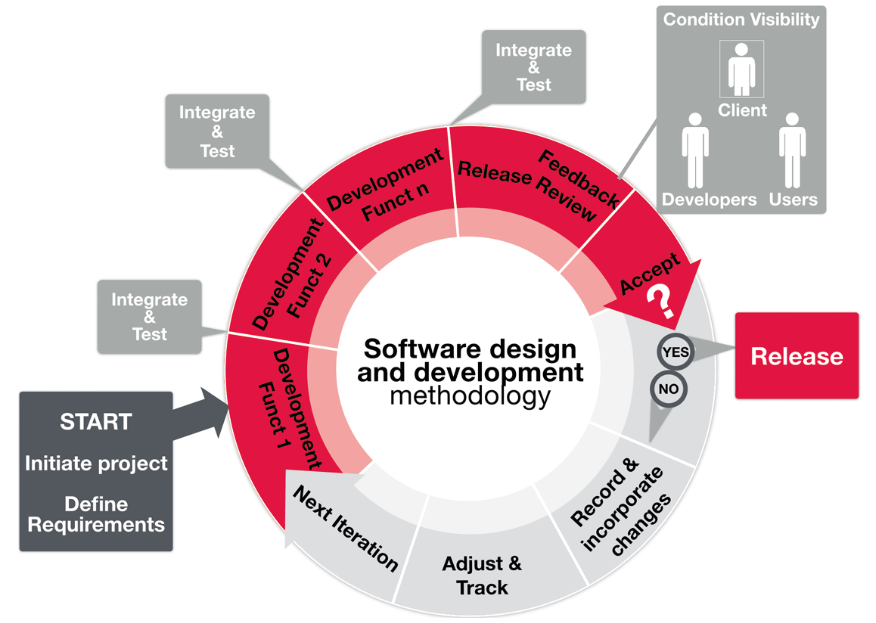Evolving Trends in Custom Enterprise Software Development: 1 Navigating the Dynamic Software Market
In the ever-evolving landscape of technology, custom enterprise software development stands as a cornerstone for businesses seeking tailored solutions to meet their specific needs. As the software market continues to surge forward, several trends are reshaping the landscape of custom enterprise software development, influencing how businesses innovate, compete, and optimize their operations.
- Embracing Cloud-Native Solutions
The shift towards cloud-native solutions has been a game-changer in custom enterprise software development. Leveraging cloud technologies allows businesses to scale effortlessly, enhance flexibility, and reduce infrastructure costs. Cloud-native approaches enable the creation of applications that are inherently scalable, reliable, and agile, accommodating dynamic business requirements. Moreover, this trend emphasizes microservices architecture, enabling modular development and fostering easier maintenance and updates.
- Focus on User-Centric Design and Experience
User experience (UX) has become a pivotal factor driving the development of enterprise software. Businesses are increasingly recognizing the significance of intuitive, user-friendly interfaces that enhance productivity and user adoption. Custom software tailored with a user-centric design approach not only streamlines workflows but also boosts employee engagement and efficiency. The emphasis on UX design ensures that software solutions resonate with end-users, driving higher satisfaction and usability.
- Integration of AI and Machine Learning
The integration of Artificial Intelligence (AI) and Machine Learning (ML) capabilities into custom enterprise software is rapidly becoming mainstream. These technologies empower businesses to harness the potential of data-driven insights, automation, and predictive analytics. AI and ML integrated software solutions optimize decision-making processes, automate routine tasks, and offer predictive analytics that drive better business outcomes. From personalized customer experiences to predictive maintenance in manufacturing, the applications of AI and ML are diverse and transformative.
- Agile and DevOps Methodologies
Agile methodologies coupled with DevOps practices have revolutionized the software development life cycle. The Agile approach emphasizes iterative development, allowing for flexibility, quicker adaptations to changing requirements, and continuous improvement. DevOps, on the other hand, promotes collaboration between development and operations teams, leading to faster deployment cycles and improved software quality. The synergy between Agile and DevOps methodologies accelerates software delivery, enhances quality, and fosters innovation.
- The Impact on Businesses
These trends collectively underline the imperative for businesses to adapt to a rapidly changing technological landscape. Embracing these trends in custom enterprise software development offers several advantages:
– Competitive Edge: Businesses adopting these trends gain a competitive edge by leveraging cutting-edge technologies to enhance efficiency, agility, and innovation.
– Scalability and Flexibility: Cloud-native solutions enable scalability, ensuring that software adapts to evolving business needs without compromising performance.
– Enhanced Decision-Making: AI and ML-driven insights empower data-driven decision-making, leading to more informed and strategic choices.
5. Cybersecurity as a Core Focus
With the increasing digitization of businesses,
cybersecurity has emerged as a top priority in custom software development. As
companies handle sensitive data, ensuring robust security measures within
custom software solutions is imperative. Integrating security features from the
initial stages of development, adopting encryption techniques, and implementing
stringent access controls are critical to safeguarding against cyber threats.
Custom software that prioritizes robust cybersecurity measures builds trust among
users and protects valuable assets from potential breaches.
6. Hybrid and Remote Work Solutions
The global shift towards remote and hybrid work models has
intensified the demand for software solutions that facilitate seamless
collaboration and productivity regardless of location. Custom enterprise
software development is now focusing on creating platforms that enable
effective communication, project management, and collaboration among
distributed teams. These solutions incorporate features such as video
conferencing, real-time document sharing, and task management tools, catering
to the needs of a remote workforce.
7. Sustainability and Green Technologies
The growing emphasis on sustainability has permeated into
the realm of software development. Businesses are increasingly seeking software
solutions that align with environmental consciousness. From optimizing energy
consumption in data centers to developing software that encourages eco-friendly
practices, the integration of green technologies into custom enterprise
software is gaining traction. Sustainable software solutions not only
contribute to a company’s corporate social responsibility but also appeal to
environmentally conscious consumers and stakeholders.
Conclusion
In the dynamic realm of custom enterprise software development, staying attuned to evolving trends is crucial for businesses aiming to thrive in a competitive market. Embracing cloud-native solutions, prioritizing user-centric design, integrating AI and ML capabilities, and adopting Agile and DevOps methodologies are pivotal strategies that drive innovation and efficiency. By understanding and harnessing these trends, businesses can chart a course towards sustainable growth, operational excellence, and a competitive edge in their respective industries.

